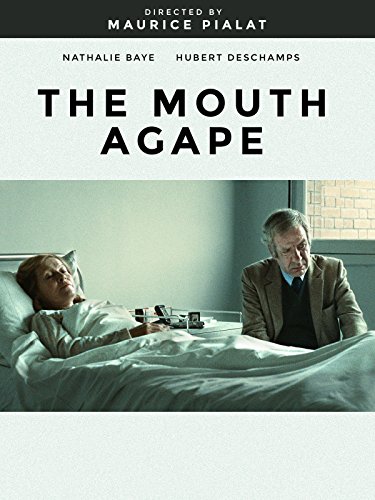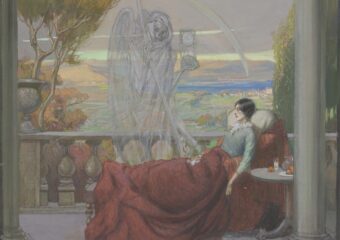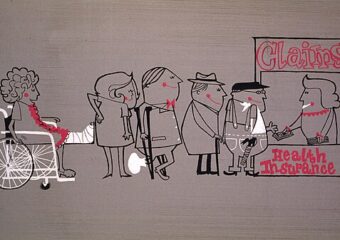Maurice Pialat – writer / director
Production companies – Lido-Films, Les Films La Boétie
Release date – 1974
Run time – 86 minutes
Seen as streamed on MUBI
French language with English subtitles
According to the art:
“When bad things happen to good people” is a common trope used in movies featuring the loss of a family member to cancer, or any disease. Something closer to bad things happen to not-so-good people is at work in this movie.
Synopsis:
“Can you take your mother home? There’s no point our keeping her here,” the doctor says to Philippe about his mother, Monique. Her breast cancer has spread to her spine and probably her brain. Monique had been staying with Philippe and his wife, Nathalie, in their cramped apartment in Paris during her treatment. They took her to her home in Auvergne, and there she remained, confined to her bed, until she died.
Monique’s husband, Roger, cared for her while also managing the family retail clothing store beneath their apartment. He spoon-fed her, cleaned her, and tried to make her comfortable with the aid of visiting nurses. Philippe and Nathalie came from Paris to help care for Monique and provide some relief for Roger. As Monique deteriorated, she required more and more of their attention, which was made all the more difficult when she lost her ability to speak. Fatigue set in and nerves frayed. Nevertheless, when Monique died, tears were shed, hugs were shared, and memories were recounted.
Through it all, though, not one of three family members exhibited a bit of grace. As they had before Monique became ill, they lied to each other, cheated on each other, and stole from each other while caring for her. None were above physical abuse—“you slapped me for no reason,” Nathalie reminds Philippe, Roger paws his female customers just below where Monique lies ill in her bed. Monique, no angel herself, had behaved similarly before cancer crimped her style. After the funeral, Roger returned to his store, and Philippe and Nathalie to Paris, where they ostensibly would pick up where they left off with their lives of banal wantonness.
Analysis:
“When bad things happen to good people” is a common trope used in movies featuring the loss of a family member to cancer, or any disease. This trope injects drama, tension, and emotion into plots. Viewers empathize with grieving relatives, feel their own emotions well up, and bemoan the unfairness of it. Such is not the case in The Mouth Agape. Whereas the obverse, when bad things happen to bad people, may not be operating in the movie, something closer to bad things happen to not-so-good people is at work.
As some examples, Philippe and Nathalie have Monique stay with them in Paris while she has clinic appointments, and they sleep on the floor so she can be comfortable in a bed. However, while she was staying there, as she told Roger later, “they weren’t very nice to me.” Indeed, while there, Philippe reminded Monique that Roger had slept with his mistress the day after they married. And then, he quickly pointed to her own trysts should she attempt any condemnation. On an occasion Roger was attending to Monique in their home after he had returned from an evening away, she calls him out for “running after some tart.” On another occasion, Roger confesses to his daughter-in-law: “I wish it was all over. I can’t take it anymore.” Nathalie contributes to Monique’s care, but in the midst of it all tells Philippe, “Your mother never liked me,” to which he replies, “and you hated her.” These characters do not engender a lot of sympathy, but the care they provide Monique blunts some of the antipathy they would draw otherwise.
The writer and director, Maurice Pialat, was known for raw portrayals of human behavior and the complexities in human relationships. He was not drawn purely to the emotional surges from good people traumatized by undeserved and grievous loss, or to the catharsis or schadenfreude from terrible people experiencing the worst an unjust and evil world offers. This movie is a case in point as Pialat depicts the human condition as more enigmatic. Monique’s family provides her with decent and humane end-of-life care while at the same time servicing their primal needs and engaging in their debaucheries. It leaves the mouth agape.
Also:
For a contrast in a marital relationship and end-of-life care as depicted in a movie, see Amour.
A version of this post will be in the NYU Literature, Arts and Medicine Database.



